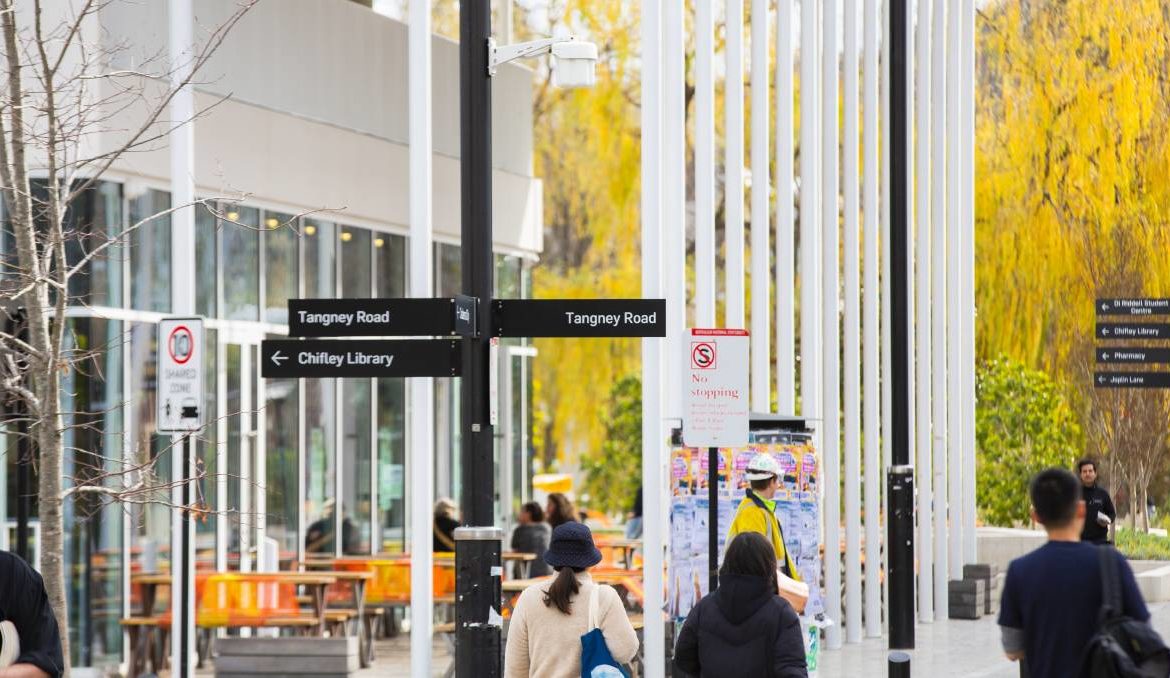news, act-politics,
International students will be barred from returning to the ACT for the beginning of the academic year as Canberra’s universities organise quarantine options for interstate students travelling from COVID-19 hotspots. Chief Minister Andrew Barr said overseas students wouldn’t be coming back to the territory any time soon after the national cabinet decided to cut the number of international arrivals. “This has been a pretty ordinary couple of years for the university sector and I think it’s going to continue to be unfortunately,” he said. “There’s a whole discussion that can be had about the funding model for Australia’s universities, that’s probably for another day, but suffice to say that I don’t think revenue from international students for the Australian university sector will ever return to its pre-COVID levels.” In December Mr Barr lobbied Prime Minister Scott Morrison to consider a plan to alternate planes of returning Australians and international students in the territory, emphasising the importance of overseas students revenue to the territory’s economy and the university sector. However, Mr Morrison maintained his position that returning Australians were to be prioritised. READ MORE: Meanwhile, the Australian National University and the University of Canberra are working to support domestic students who will need a border exemption from ACT Health to begin studying in February. A spokeswoman for the ANU said students would be able to complete their 14 days of quarantine in student accommodation, if they had signed a contract with a residence, or in private accommodation. “The arrangements for home-based quarantine in student accommodation are subject to approval by ACT Health and we are currently working through the specific details,” the spokeswoman said. A University of Canberra spokeswoman said the institution was looking at options for students to undertake mandatory quarantine on campus. The university is liaising with the ACT government on the requirements for border exemptions for new students who are not yet ACT residents. Both universities will offer remote learning options for students overseas and interstate who are unable to return to campus due to travel restrictions and quarantine requirements.
/images/transform/v1/crop/frm/fdcx/doc7b1e50l3gva6750z37q.jpg/r0_264_5000_3089_w1200_h678_fmax.jpg
International students will be barred from returning to the ACT for the beginning of the academic year as Canberra’s universities organise quarantine options for interstate students travelling from COVID-19 hotspots.
“This has been a pretty ordinary couple of years for the university sector and I think it’s going to continue to be unfortunately,” he said.
“There’s a whole discussion that can be had about the funding model for Australia’s universities, that’s probably for another day, but suffice to say that I don’t think revenue from international students for the Australian university sector will ever return to its pre-COVID levels.”
However, Mr Morrison maintained his position that returning Australians were to be prioritised.
Meanwhile, the Australian National University and the University of Canberra are working to support domestic students who will need a border exemption from ACT Health to begin studying in February.
A spokeswoman for the ANU said students would be able to complete their 14 days of quarantine in student accommodation, if they had signed a contract with a residence, or in private accommodation.
“The arrangements for home-based quarantine in student accommodation are subject to approval by ACT Health and we are currently working through the specific details,” the spokeswoman said.
A University of Canberra spokeswoman said the institution was looking at options for students to undertake mandatory quarantine on campus.
The university is liaising with the ACT government on the requirements for border exemptions for new students who are not yet ACT residents.
Both universities will offer remote learning options for students overseas and interstate who are unable to return to campus due to travel restrictions and quarantine requirements.
Overseas students will not be able to travel to Canberra for the start of the academic year while domestic students from COVID-19 hotspots will need an exemption and a place to quarantine for 14 days. Picture: Jamila Toderas







